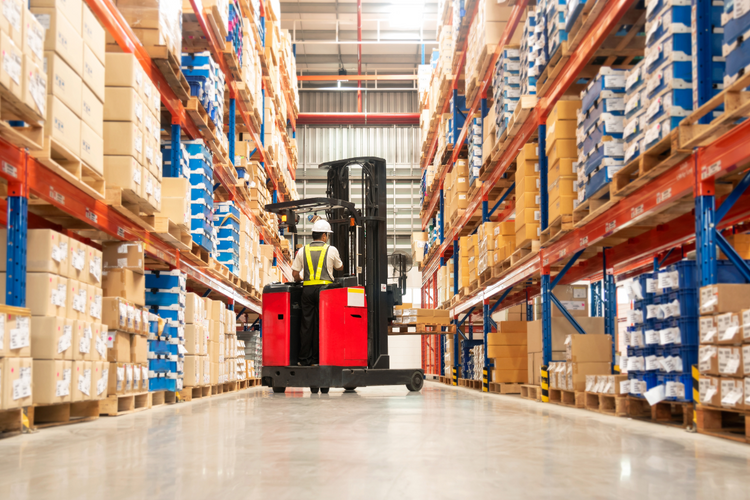The Liquidations and Reverse Logistics Industry: Providing a Sustainable Outlet for Returned, Imperfect, or Unused Goods

BidFTA is one of the country’s leaders in the liquidations and reverse logistics industry. This industry plays a crucial role in today's economy by efficiently managing the flow of unwanted or unused goods and optimizing their value. With the rise of e-commerce and consumer demand for hassle-free returns, companies must navigate the complexities of product returns, excess inventory, and asset recovery. In this article, we will examine the challenges companies face, the options they have, and how BidFTA can assist in providing a sustainable and positive outlet for these goods.
**I. Understanding Liquidations and Reverse Logistics **
The liquidations process involves selling excess inventory, returned products, or discontinued items and allows producers and retailers to monetize this product. Manufacturers, retailers, and e-commerce platforms often rely on liquidation channels to dispose of these goods efficiently. Liquidation platforms, online auctions, and dedicated marketplaces facilitate the selling process, attracting buyers interested in acquiring these discounted products. Reverse logistics encompasses the management of product returns, including reverse supply chains, repairs, refurbishment, recycling, or final disposal. It involves the movement of goods from the end-user back to the manufacturer or seller. Reverse logistics aims to optimize the value of returned products while minimizing costs and environmental impact.
**II. The Role and Benefits of the Liquidations and Reverse Logistics Companies **
A. Maximizing Value Recovery The liquidations and reverse logistics industry enables businesses to recover value from returned, excess, or end-of-life products that would otherwise go to waste. By efficiently managing returns, companies can recover a portion of the initial investment and reduce losses associated with unsold inventory. This industry also presents an opportunity for buyers to access discounted merchandise, offering an alternative market for cost-conscious consumers.
B. Environmental Sustainability Effective reverse logistics practices contribute to environmental sustainability by reducing waste and minimizing the carbon footprint associated with discarded goods. Through refurbishment, recycling, or resale, the liquidations and reverse logistics industry promotes the circular economy and reduces the need for raw material extraction and production.
C. Supply Chain Efficiency The liquidations and reverse logistics industry enhances overall supply chain efficiency by streamlining the movement of goods in the opposite direction. By optimizing return processes and facilitating the disposition of excess inventory, companies can free up warehouse space, reduce carrying costs, and improve inventory management. This industry also provides valuable data and insights on customer behavior and product quality that can be leveraged for future supply chain optimization.
**III. Key Challenges in the Liquidations and Reverse Logistics Industry **
One of the main challenges in liquidations and reverse logistics is handling the wide variety of returned products, ranging from electronics and apparel to perishable goods. Assessing the condition and functionality of these products requires expertise and efficient quality control processes to determine their value and appropriate disposition. At BidFTA, we do all the grading for you! There’s no need to create those processes in-house and spend valuable time and resources on this.
Reverse logistics involves managing the movement of products from multiple locations, often requiring specialized logistics services. Coordinating pickups, consolidating shipments, and minimizing transit times become essential to maintain efficiency and reduce costs. This can be a challenging task for retailers, and BidFTA has a multitude of options that mitigate these challenges for our customers. From booking trucks to ensuring a timely return on your product, BidFTA has you covered.
To effectively manage the reverse logistics process, companies must gather and analyze data on returns, inventory, and market demand. Utilizing technology and robust data management systems can enhance visibility and enable better decision-making. BidFTA offers our suppliers an in-depth understanding of recovery data, so you know just how much you’re recovering for your product through partnering with us.
IV. Strategies for Success in the Liquidations and Reverse Logistics Industry
Collaboration between retailers, manufacturers, liquidators, and logistics providers is crucial to ensure seamless operations in the liquidations and reverse logistics industry. Partnerships can lead to shared resources, expertise, and increased market reach, benefiting all stakeholders involved. When you decide to partner with BidFTA as a partner in providing liquidations solutions, you will be integrating a revenue stream and an environmentally friendly solution to your business. We also assist with transportation from your locations to ours, and even can provide onsite auction pick-ups, if desired.
At BidFTA, we make partnering simple and convenient. Simply connect with us by emailing sellersupport@bifta.com, and we will tailor a customized solution to fit your needs. We look forward to working with you!